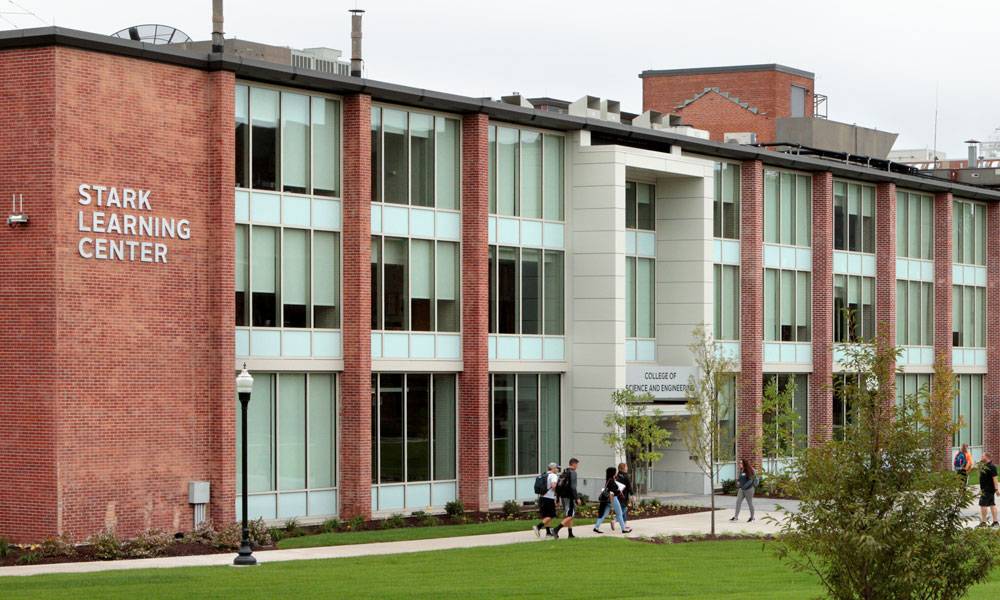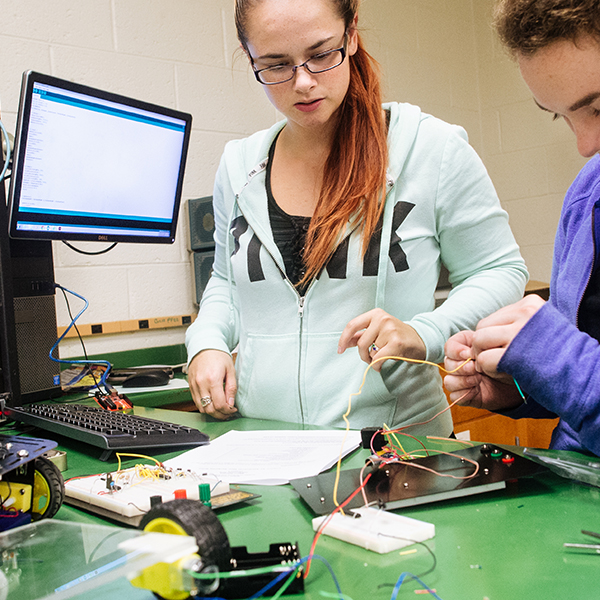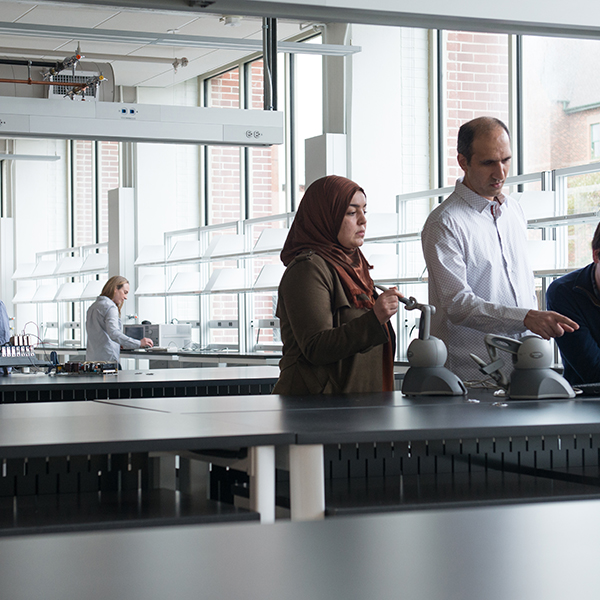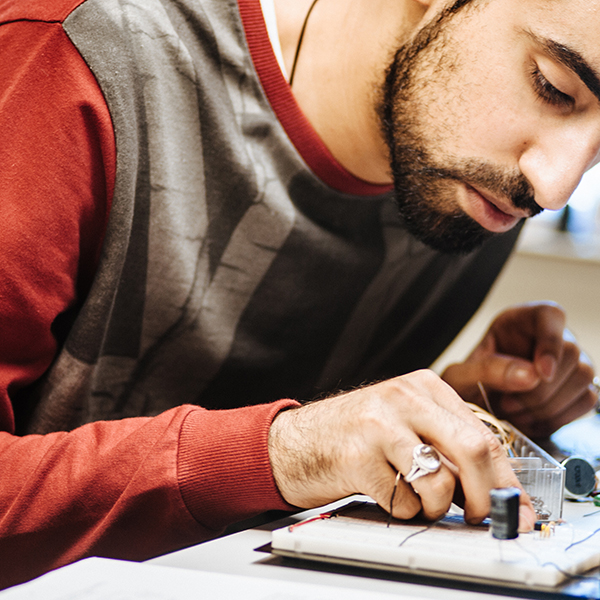Advance health science. Reimagine medical treatments. Engineer new devices. A master's degree in bioengineering makes it possible with a cutting-edge curriculum taught by internationally-recognized faculty experts. Concentrations in biomedical engineering and synthetic biology create specialized paths of study.
Upcoming events to be announced.
Program Snapshot
| Program Type | Format | Credit Hours |
|---|---|---|
| Master's Degree | On Campus | 36 |
Why Study Bioengineering at Wilkes?
As a student in the bioengineering master's degree program, you'll benefit from hands-on experiences unparalleled at other institutions in the region. Lab and classroom instruction include training in cell and molecular techniques, bioinformatics, 3-D imaging and design software and instrumentation, and various simulation technologies. You will use the state-of-art Mark Engineering Center which uses the latest professional technology to ensure you are prepared for your next step, whether that be an advanced career in the field, a research position or a PhD program.
What Will You Learn in the Bioengineering MS Program?
- Advanced engineering concepts blended with biology, medicine and computer sciences innovate our students to develop new medical devices and biochemical or synthetic organisms for solving medical, industrial or environmental problems.
- If you select the biomedical engineering track, you will learn how to design artificial limbs, joints, tissues and organs as well as build diagnostic equipment, monitoring devices and drug delivery systems.
- If you select the synthetic biology track, you will learn how to create biological molecules, systems or entire organisms, which are useful for medical applications or for performing unique functions such as detecting or detoxifying biohazardous chemicals.



